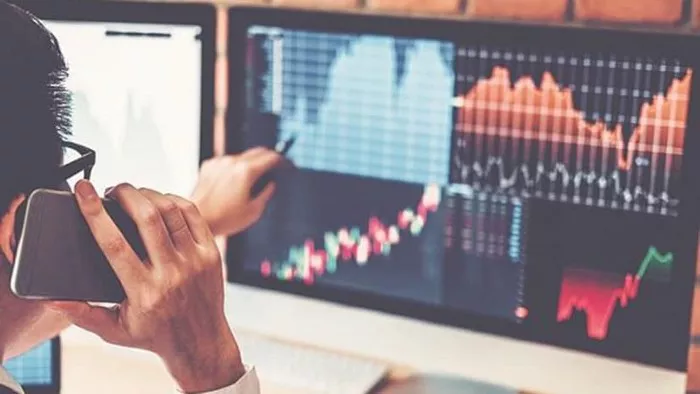Futures trading, a popular and dynamic financial market, provides traders with opportunities to profit from the price movements of various assets, from commodities and currencies to stock market indices. TradingView, a widely used charting platform, offers a powerful and user-friendly interface for trading futures.
Understanding Futures
Before delving into trading futures on TradingView, it’s essential to have a solid grasp of what futures are. Futures are standardized financial contracts that obligate the buyer to purchase and the seller to sell a specified quantity of an underlying asset at a predetermined price on a future date. These contracts serve various purposes, including hedging, speculation, and price discovery.
Types of Futures Contracts: Futures can encompass a wide range of assets, such as commodities (e.g., oil, gold), stock market indices (e.g., S&P 500), and currencies (e.g., Euro/USD). Understanding the type of futures contract you wish to trade is the first step in your journey.
Leverage: One of the key features of futures trading is leverage. Traders can control a large position with a relatively small amount of capital. While this can amplify gains, it also increases the potential for losses.
Getting Started with TradingView
TradingView is a popular online charting platform that also offers an integrated brokerage service. To begin trading futures on TradingView, follow these steps:
Sign Up: Create a TradingView account and log in.
Choose a Broker: TradingView partners with several brokerage firms that offer futures trading. Select a broker that suits your needs and complete the broker’s account setup process.
Link Your Broker Account: After setting up your brokerage account, link it to your TradingView account to enable trading directly from the platform.
Fund Your Account: Deposit funds into your broker account to have the capital needed for trading futures contracts.
Navigating TradingView’s Futures Charting Tools
TradingView is renowned for its extensive charting capabilities, which make it a valuable tool for futures traders. Here’s how to navigate the platform:
Select Your Chart: Choose the asset you want to trade by entering the respective futures contract symbol. For example, ES for E-mini S&P 500 futures.
Customize Your Chart: Customize your chart by adjusting timeframes, adding technical indicators, and drawing tools to help analyze price movements and make informed trading decisions.
Place Orders: TradingView allows you to place various order types, including market orders, limit orders, stop orders, and more. Set your order parameters and execute your trades directly from the platform.
Executing Futures Trades
Once you have set up your TradingView account and linked it to a brokerage that offers futures trading, you can execute trades. Here’s how to do it:
Choose Your Futures Contract: On your chart, select the futures contract you wish to trade.
Select the Order Type: Choose the type of order you want to use, such as a market order, limit order, or stop order. Make sure to specify the quantity of contracts you want to trade.
Set Stop Loss and Take Profit: It’s crucial to manage risk in futures trading. Set stop-loss and take-profit levels to automatically limit potential losses and secure profits.
Review and Confirm: Before finalizing your trade, double-check all order parameters, including the contract, order type, quantity, and price. Confirm the trade when you are satisfied.
Monitor Your Positions: After entering a trade, you can monitor your positions on TradingView’s chart. It provides real-time data to keep you informed about your trades.
Risk Management in Futures Trading
Managing risk is paramount in futures trading, as the inherent leverage can lead to substantial gains and losses. Here are key risk management strategies:
Use Stop-Loss Orders: Always set stop-loss orders to limit potential losses. These orders automatically close your position if the market moves against you beyond a certain point.
Diversify Your Portfolio: Avoid putting all your capital into a single futures contract. Diversify your portfolio by trading multiple contracts or asset classes.
Position Sizing: Determine the appropriate position size based on your risk tolerance and available capital. Avoid overleveraging, as it can lead to significant losses.
Risk-Reward Ratio: Evaluate the risk-reward ratio for each trade. Ensure that potential rewards justify the risk you are taking.
Stay Informed: Keep an eye on economic events and news that could affect the futures market. Unexpected news can lead to rapid price movements.
Advanced Trading Strategies
Futures trading on TradingView allows for various strategies, from day trading to swing trading. Here are some advanced strategies to consider:
Trend Following: Identify trends and trade in the direction of the prevailing trend. Use technical indicators and trendlines to confirm your entries and exits.
Arbitrage: Take advantage of price disparities between related futures contracts or between futures and spot markets. This strategy requires a deep understanding of the market.
Options Strategies: Combine futures and options to create complex strategies, such as covered calls or straddle strategies, which can help you manage risk and maximize returns.
Seasonal Trading: Some commodities and indices exhibit seasonal price patterns. Study historical data to identify seasonal trends and plan your trades accordingly.
Algorithmic Trading: Develop or use algorithmic trading systems to automate your trading strategies. TradingView supports algorithmic trading through its API.
Conclusion
Futures trading on TradingView opens up a world of opportunities for traders looking to profit from the price movements of various assets. With the right knowledge and strategy, you can navigate this dynamic market with confidence. However, always remember that futures trading involves significant risk due to leverage, and it’s essential to approach it with caution and discipline. By understanding the fundamentals of futures, using TradingView’s charting tools, and implementing risk management strategies, you can embark on a rewarding journey in the world of futures trading.

